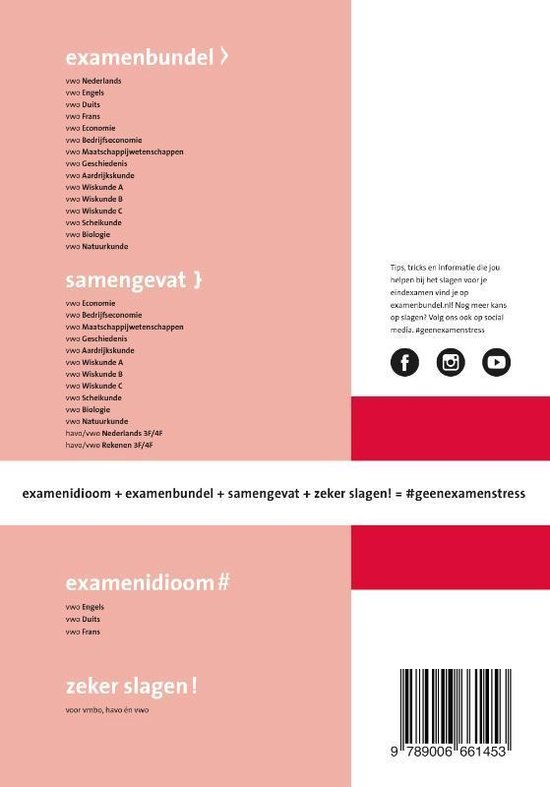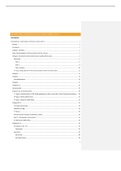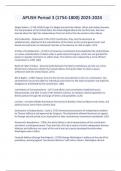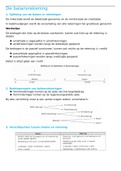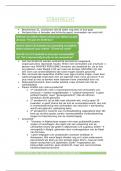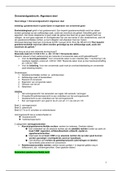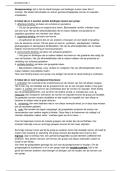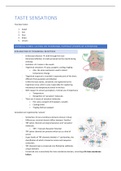Primaire, secundaire en tertiaire socialisatie Primair: gezin/vrienden
Secundair: werk/school
Tertiair: onbewust media
Internaliseren Eigen maken van de cultuurelementen/waarden/normen
Dynamische culturen Culturen zijn tijd- en plaatsgebonden, culturen veranderen altijd
Sociaal, economisch en cultureel kapitaal Sociaal: netwerken
Economisch: geld
Cultureel: kennis en cultuur
Functies van socialisatie Continuering + verandering van cultuur
Identificatie met eigen cultuur
Identiteitsontwikkeling
Gedragsregulering
Nature en nurture Nature: vanuit de genen
Nurture: vanuit omgeving
Dominante culturen en subculturen Van de samenleving/van de eigen groep
Politieke dimensies Rechts/links en progressief/conservatief
Nationalisme/internationalisme
Materialisme/postmaterialisme: bezit/waarden
Politieke ideologieën (hun uitgangspunten/kenmerken) Socialisme: gelijkheid
Liberalisme: vrijheid
Confessionalisme: samenwerking
Dimensies van Hofstede Masculien-feminien: ongelijk-gelijk voor beide geslachten
Individualistisch-collectivistisch: focus op individu-focus op groep
Grote machtsafstand-kleine machtsafstand: sterke hiërarchie-meer informele omgang
Lage onzekerheidsvermijding-hoge onzekerheidsvermijding: soepele-strenge regels
Lange termijn-korte termijn: discipline en toekomst-tradities en sociale verplichting
Persoonlijke, sociale en collectieve identiteit Persoonlijk: zelfdefinitie
Sociaal: eigen groep.
Collectief: groep denkt over andere groep
, Binding
Factoren die sociale cohesie bevorderen Wederzijdse afhankelijkheid, dwang (sociale controle), waarden en normen
Mechanische en organische solidariteit Mechanisch: traditioneel > collectief bewustzijn, vaste patronen, gelijk
Organisch: modern > individualiteit, zelfbepaling, afhankelijkheid
3 problemen rond politieke cohesie Politieke betrokkenheid: wordt minder
Bestuurlijke schaalvergroting: samenwerking alleen op nationaal gebied
gemankeerde communicatie: politici eigen jargon en taal
4 type bindingen Economisch, politiek, cognitief, affectief
Onderscheid tussen groepen Formeel-informeel: officiële regels-geen regels
Primair-secundair: persoonlijke band-doelgerichte band
Ingroup-outgroup: positief beeld eigen groep- negatief beeld andere groep
Fasen van groepsvorming (5 fasen) Oriëntatiefase: onzekerheid
Conflictfase: verschil van mening
Integratiefase: evenwicht in waarden normen
Uitvoeringfase: samenwerking
Ordefase: regels en institutionalisering
Kenmerken van sociale institutie (4x) Traditie, stabiel en veranderlijk (niet door individu), verplicht, gezag en macht
Functies politieke partijen Rekrutering en selectie: van kandidaten
Articulatie: eisen en wensen samenleving
Participatie: burgers doen mee
Aggregatie: binnen partij overleggen
Communicatie: volksvertegenwoordiger tussen burger en overheid
Veranderingen van de betekenis van politieke partijen Achterban is minder stemstabiel
Minder mensen lid van partij
Media en pressiegroepen vervullen al de functies
Individuen krijgen de aandacht ipv partijen
Staatsvorming en natievorming Staat: grondgebied, interne/externe soevereiniteit, geweld-belastingmonopolie
Natie: groepsbewustzijn en verbondenheid is gekoppeld aan de wens om een politieke
eenheid te vormen

